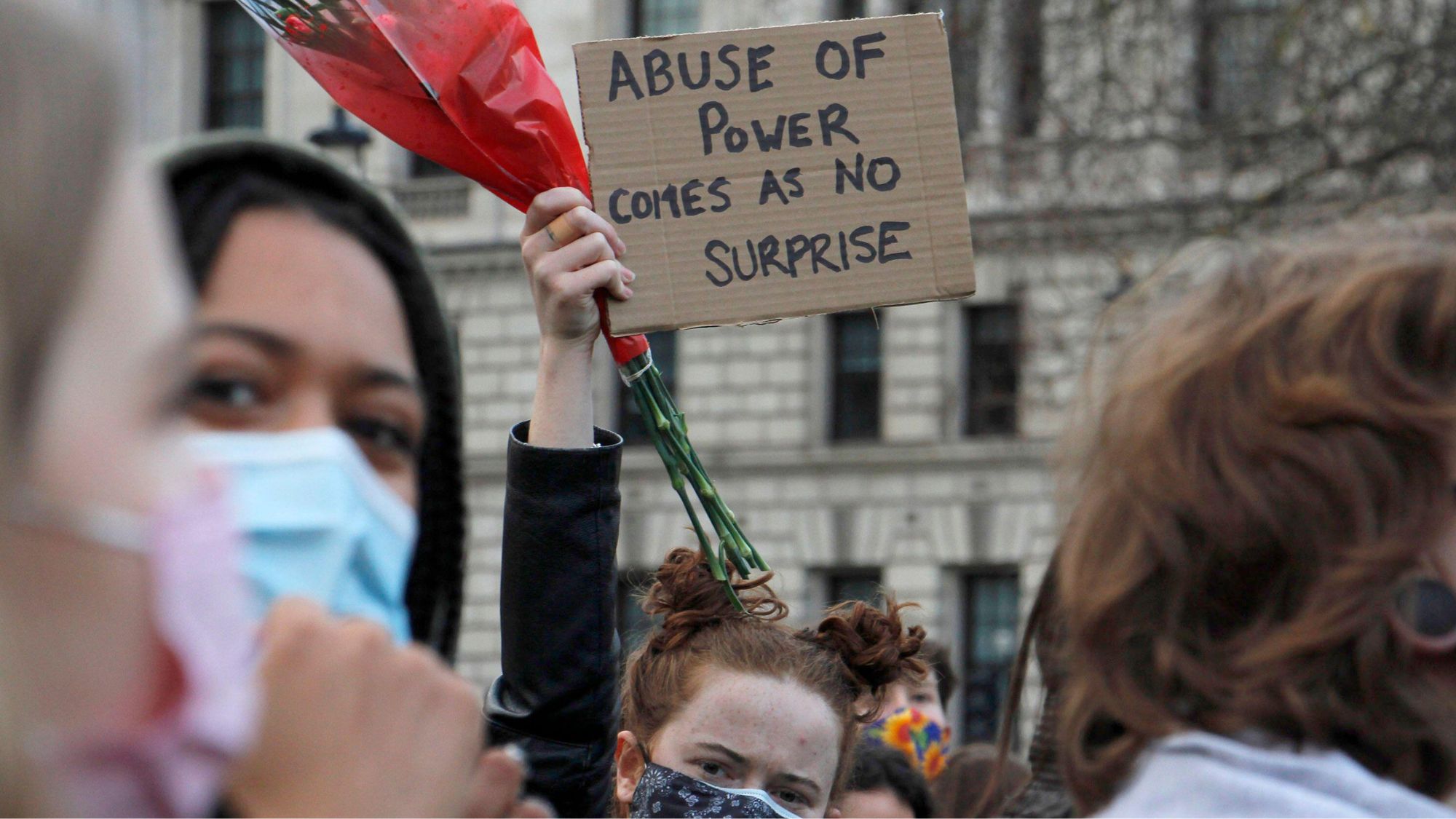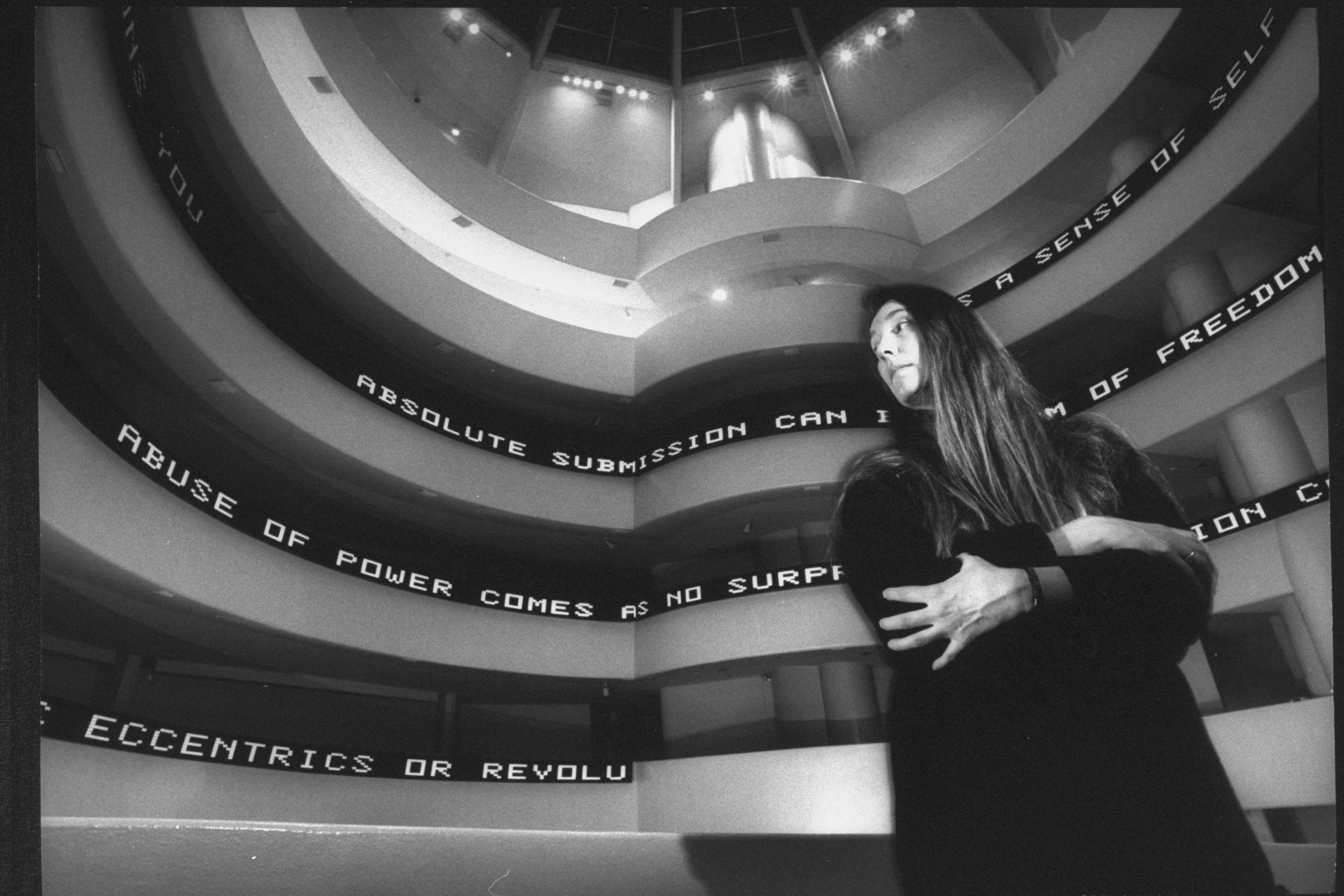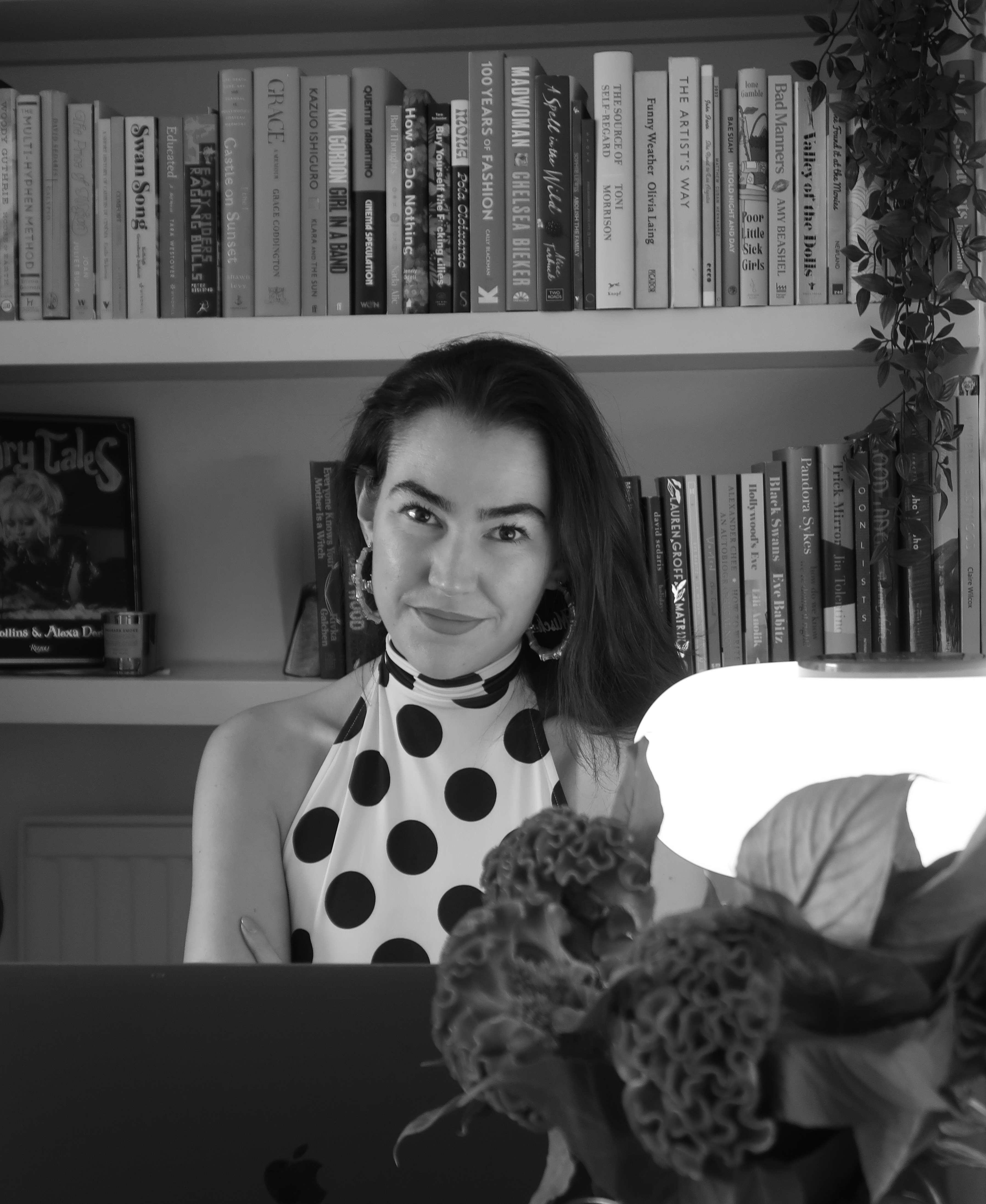“Abuse of power comes as no surprise”: yet time and again exploitation goes unchecked
We are in a sexual violence epidemic and women are being failed


Celebrity news, beauty, fashion advice, and fascinating features, delivered straight to your inbox!
You are now subscribed
Your newsletter sign-up was successful
Content warning: this article contains themes of sexual violence
In 1982, artist Jenny Holzer lit up a billboard in New York’s Times Square with the words, “Abuse of power comes as no surprise”. The work was unmissable and has since been beamed in countries across the world. Yet 42 years later, abuses of power continue to ignite surprise.
The Angiolini Inquiry reveals a gruesome trail of offences, which include alleged kidnapping and the alleged sexual assault of a child, leading up to the murder of Sarah Everard in 2021. Wayne Couzens’ previous offences make for harrowing reading, but for many women, the missed red flags come as no surprise.

Artist Jenny Holzer in front of her installation at the Guggenheim Museum
Lady Elish Angiolini concludes that Couzens should never have been a police officer, but we already knew that. What we didn’t know was the depth and depravity of the alleged offences that first started almost thirty years ago and include attempting to kidnap someone at knifepoint, raping a woman under a bridge and indecent exposure. The report is only part one of the Home Office-commissioned inquiry into his career.
Couzens was also reported to police eight times for exposing himself in the years before he murdered Sarah Everard in March 2021. The last reported incident was just three days prior. Flashing is known to be a gateway crime that can lead to more violent sexual offences, but it has historically been overlooked and under-investigated; in Couzens’ case, three separate forces (Kent Police, Civil Nuclear Constabulary and the Metropolitan) failed to investigate. Data from the Office for National Statistics shows a 40% rise in offences of indecent exposure and voyeurism between 2016 and 2021. The most recent report — almost four years ago — revealed that women and girls were being exposed to more than 200 times a week. That number has likely increased as abusers feel emboldened by a lack of retribution.
Despite police and politicians aggressively peddling the ‘few bad apples’ narrative, public trust in the police is understandably low. Metropolitan Police Officer David Carrick was revealed to be one of the worst sexual offenders in modern history. He, too, “had come to the attention of the Met and other forces on nine occasions prior to October 2021”.
Following The Angiolini Inquiry, a police leader described being “aghast” at the “catalogue of missed opportunities and red flags”, but that shock is itself a privilege. 2016’s #MeToo movement revealed how far-reaching and widely tolerated misogyny and violence against women and girls has been in almost every corner of society. We are still grappling with the scope and severity of crimes committed by predators who were allowed to operate for years. They were uninvestigated but certainly not unknown.
Celebrity news, beauty, fashion advice, and fascinating features, delivered straight to your inbox!
The inquiry makes it plain that what the police have deemed low-level violence against women and girls has not been taken seriously, that’s if it’s been investigated at all. Harriet Wistrich, Solicitor and Director of Centre for Women’s Justice, argues that there not only needs to be better accountability of abusers but also for those “who fail to report wrongdoing and of managers who fail to stamp out misogynistic culture within policing units.” This sentiment should not be reserved for the police force.
A culture of silence and toxic tolerance has permeated every industry. We’ve seen it in high-profile cases like Harvey Weinstein, Donald Trump, and, more recently, Russell Brand, but what about the offences not committed by celebrities that may never come to light and certainly won’t make front-page headlines?
A post shared by Nineties Anxiety
A photo posted by 90sanxiety on
The widespread acceptance of sexism has not only protected the already powerful; it has granted men at every level a position of power. Abuse is not limited to titans of industry, as every woman who has had a manager brush up against her “accidentally” or squeeze her knee already knows.
The long-awaited report calls for police vetting systems to be overhauled, but it’s light relief for those who have been subject to violence, abuse and harassment. Of course, not every policeman is an offender, but an organisation that fails to identify abusers in its ranks cannot be surprised when a culture of disregard towards women seeps in. We see this in the low prosecution rates for crimes against women, which has led to one in two women feeling unsafe walking alone after dark in a quiet street near their home, according to data from ONS.
“Virtually all rape victims are denied justice”, reads a report into criminal justice outcomes for sex offences by Saunders Law. The same study found a 68% increase in rapes since 2016-2017, yet of the harrowing 67,938 cases that the police recorded between October 2022 and September 2023, only 1,631 were charged - just 2.4% of all cases.
Rape Crisis England and Wales notes that 5 in 6 women who are raped don’t report it, and 38% cite not thinking the police could help as their reason for not coming forward. Can we be surprised? The Metropolitan is currently investigating over 1,000 cases of alleged sexual and domestic abuses by its officers, and that’s just one force.
“Violence against women and girls (VAWG) needs to be a genuine priority, and the public needs to see real change”, argues Harriet Wistrich. Until that happens, can we really be surprised when men act as if they’re invincible, buoyed by a society that allows them to act without fear of impunity?

Mischa Anouk Smith is the News and Features Editor of Marie Claire UK, commissioning and writing in-depth features on culture, politics, and issues that shape women’s lives. Her work blends sharp cultural insight with rigorous reporting, from pop culture and technology to fertility, work, and relationships. Mischa’s investigations have earned awards and led to appearances on BBC Politics Live and Woman’s Hour. For her investigation into rape culture in primary schools, she was shortlisted for an End Violence Against Women award. She previously wrote for Refinery29, Stylist, Dazed, and Far Out.